The Kill That Stays With You
Lessons in Blood, Sweat, and Bone
There are the hunts you celebrate, and the kills you carry. The ones that linger are not the heavy packs or the swollen freezers. They’re the moments when the arrow veers or the bullet lands wrong, and you’re left staring at the weight of your own imperfection.
I’ve never lost an animal, though I know the day will likely come.
I walk into every hunt with that truth shadowing me, because the line between clean and catastrophic is so thin that it can be crossed in the harsh breath of a stiff breeze.
What stays with me are the hunts where I walked close enough to see that line, hunts where I learned lessons that still burn through every pull of a string or squeeze of a trigger.
There are the typical hunts that live on in stories, dressed up with laughter, tall tales, and the easy pride of success. Those are the ones told at the fire or in a bar, polished smooth until they shine.
Then there are the others. The ones no one talks about.
I’ve had the honor of taking many animals home with me.
I carry two with me on my back each time I venture into the field.
The Weight We Shouldered
The first of those was a whitetail buck that gave me a clear shot at thirty yards. He stood facing me, his chest broad and still. I’d studied every anatomy diagram, felt that I knew every rib, vein, and opening, and convinced myself that a frontal shot with my bow was a certain success in this very particular setting. I’d heard the stories from so many who had made it work and carried their confidence as if it were my own.
I let the string go, and my arrow flew true. A single muscle twitch meant the slightest shift in that buck’s stance. It was such a minute movement in such a fraction of a second, but it changed everything. My arrow entered exactly where I planned it to and then deflected hard, driving into the inside of the shoulder, missing everything vital, and leaving him alive but broken.
I found him five days later.
Five days of tracking blood spatter and pools in pristine snow.
Five days of trudging through waist-deep heartbreak and cold.
Five days of sleepless nights replaying that moment.
Five days of knowing he was out there, carrying my mistake.
When I finally caught up with him and ended it, there was no relief for anyone. There was no celebration, no pride, no rest.
There was only the vow that I would never again put an arrow into the chest of a deer facing me. That shot may have worked for countless others, but for me, I had seen the cost, paid my portion, and I refuse to bill the rest to another animal.
What Can’t Be Unseen
The second animal I carry was a pronghorn taken in a snowstorm. The air was heavy and sideways, flakes stinging my face, and fingers numb in a world narrowed by the storm. The rifle cracked, and the buck… bucked. Then dropped.
I should have felt the relief of a clean kill, but there was no relief. He had taken the bullet through both front legs and fallen in a way that left him wounded, alive, and waiting. He wasn’t mortally wounded in any traditional way. He was fully aware, breathing clearly, and just physically incapable of getting up.
Because of the small ridge he was standing on when I shot, it forced me to walk up to within 5 yards of him to end it. My rifle was heavy in my hands, and the storm was closing around us.
He could not run.
He could not fight.
He watched me walk right up to him, violating generations of flight.
His eyes locked on mine; a sight he should have never seen.
When I shouldered the rifle again and finished it, his eyes stayed on mine until they went dim.
That look has never left me. It’s not the kind of kill that you brag about. It’s the kind that strips you bare and leaves you carrying the memory like a stone in your pack, unable to set it down, no matter how far you walk.
Imperfection Reflection
Between those two hunts, I’ve carried lessons that are heavier than the animals themselves. The deer taught me that certainty can vanish in a twitch of muscle, that confidence built on the words of others can collapse in an instant, that life will never be textbook-tight.
The pronghorn taught me that even when the shot feels true, there is no guarantee that death will come clean, and the pain of the second shot lasts long beyond that death.
Both remain with me because both forced me to see hunting not as a chain of victories but as a series of reckonings.
Even in their imperfection, those moments exist in a place that feels more honest than the way most meat comes into this world. A wounded deer tracked for days and a pronghorn that met my eyes in a storm still lived wild, still carried the strength of their own bodies, and still died at the hand of someone who truly saw them.
The darkest hunts still hold more dignity than the silent line of feedlot cattle moving toward a bolt gun. That doesn’t absolve me of the mistakes, nor does it make the rancher evil. It certainly doesn’t ease the weight of watching an animal suffer longer than it should have.
It only reminds me that at least here, in this work, there is no curtain drawn over death. It is seen, it is heard, it is carried, and it is owned. Sometimes, we make decisions that make that ownership hard.
The Shot I Dread
What I fear most is not the clean miss, it is the wound that walks away. One day, an arrow or a bullet of mine will slip into an animal; an animal I will never lay eyes on again. That day waits for every hunter, it seems. I’ve yet to cross paths with a hunter of any distinguished age who outruns it.
The thought of a creature dragging my mistake into the dark cuts deeper than any triumph has ever filled me. It gnaws in a way meat never satisfies. That fear is the whetstone I draw myself against. It keeps my hand steady, my breath measured, my judgment slow when haste could undo me.
It’s the voice that asks if the shot is worthy before I ever let it go.
Added Weight
The kills that stay with you aren’t the tales of glory, the antlers hung on the wall, or the stories of laughter around a fire.
The skulls of those two animals stare at me every day, stripped to bone beneath the antlers and horns I pulled home.
When I look back at them, I see the warmed patches in the snow where a wounded buck lay before pushing on, blood soaking down to the earth as he fought to live. I see the pain etched in his trail, the struggle in every step, and the fear I caused that followed him until the end.
I see the pronghorn in the storm, his eyes locked on mine as I walked in to finish what I had failed to do cleanly.
What hangs above me isn’t triumph. It’s that deflected arrow. It’s that stare through the snow. It’s the weight of what I asked for when I chose to kill.
Those are the hunts that split me open and showed me the narrow line between honor and disaster. They’re the ghosts that shoulder in beside me every time I draw a bow or cradle a rifle.
They remind me that every shot drawn is a covenant, and breaking that covenant means carrying that animal on my back into the field with me until my last arrow and breath is drawn.
In the end, what I draw is not only the bow, but the weight of every life I’ve taken.



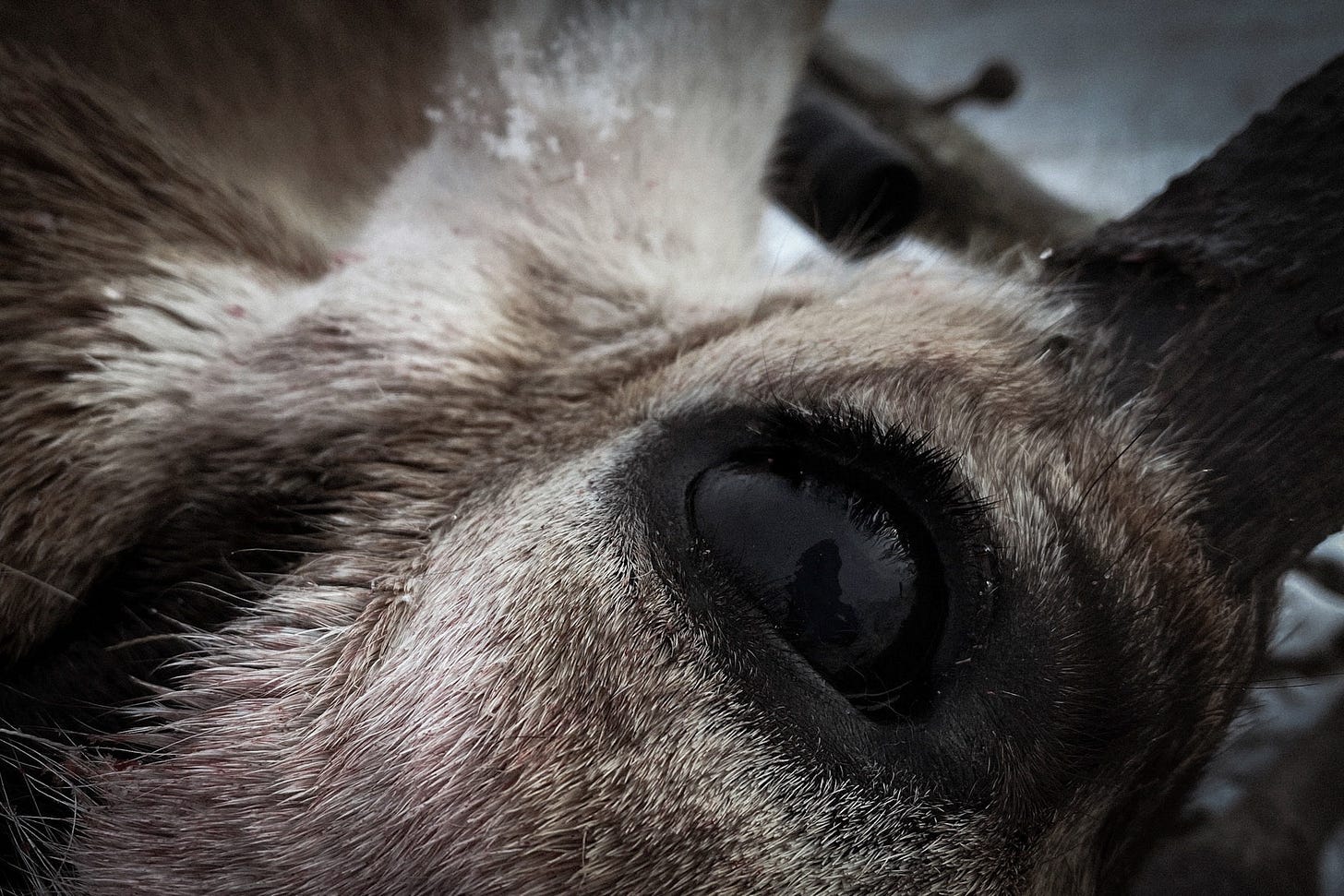
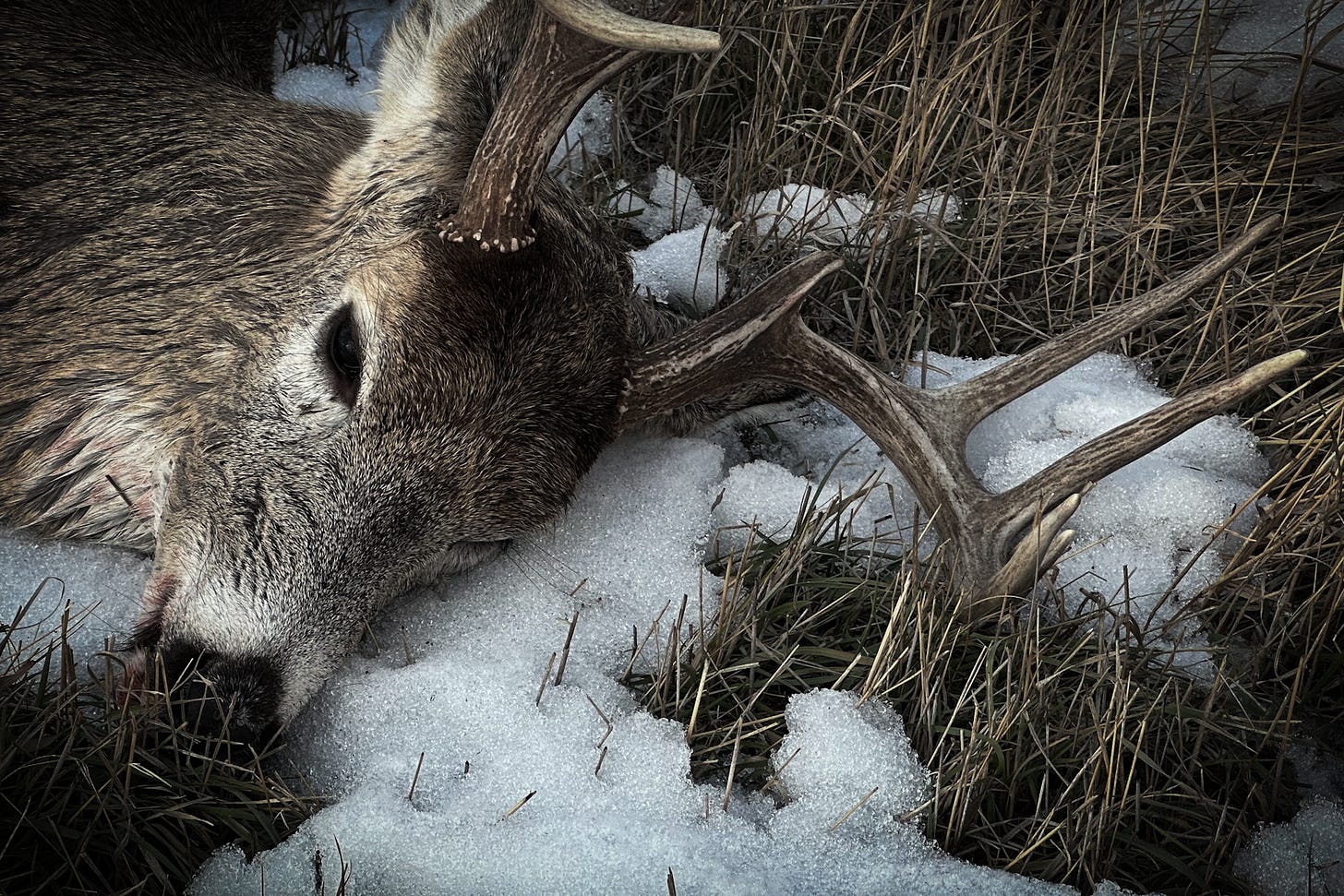
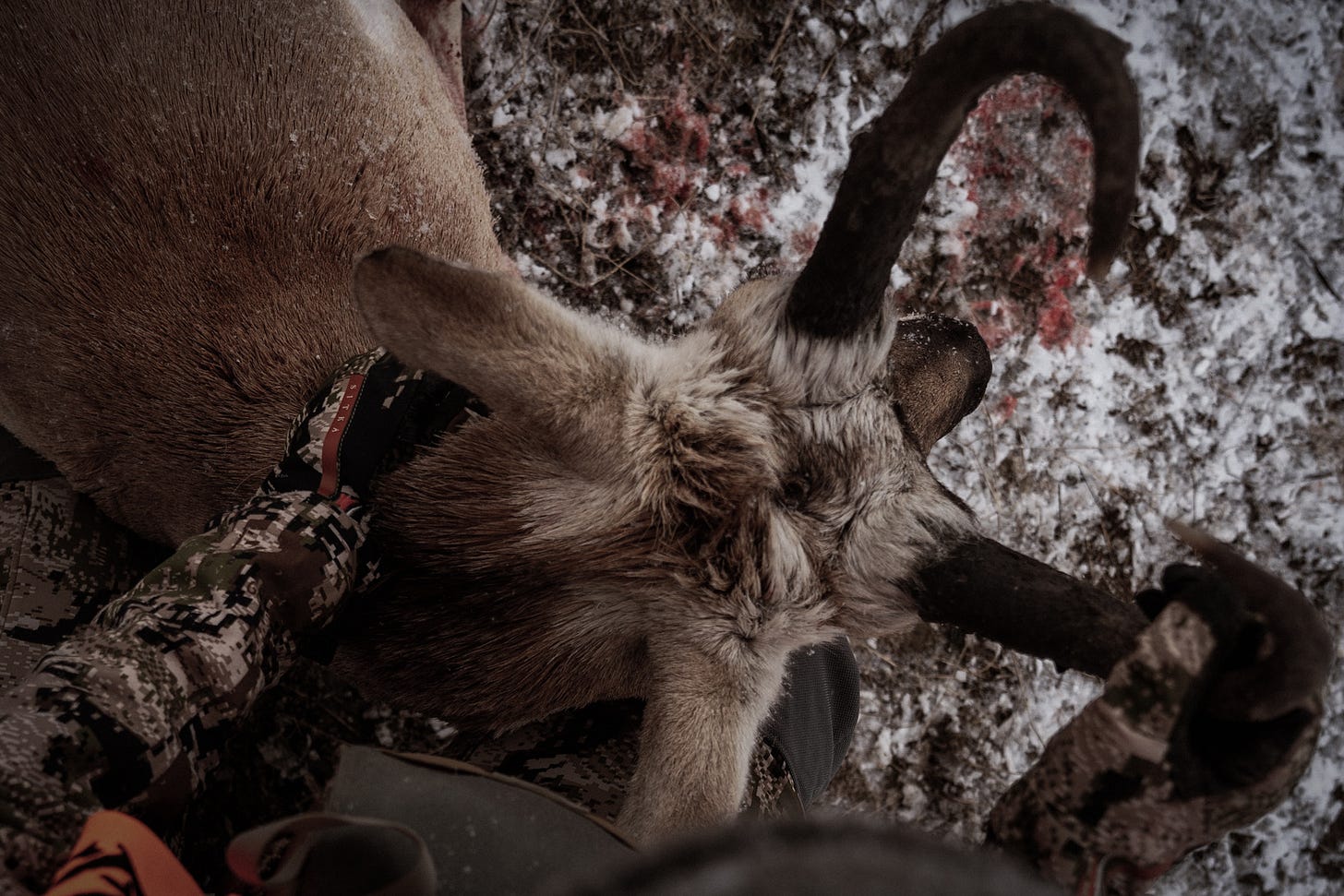
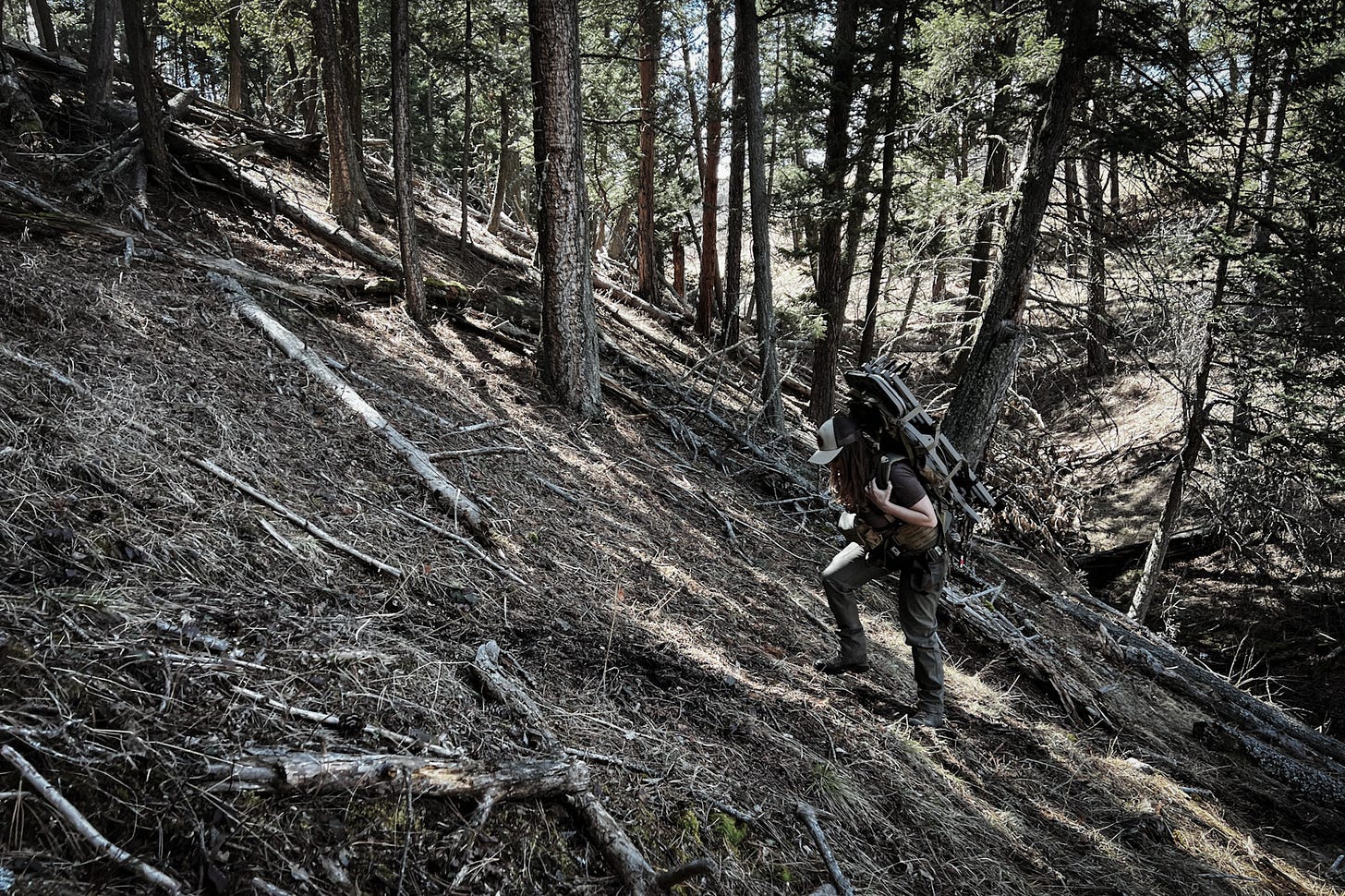
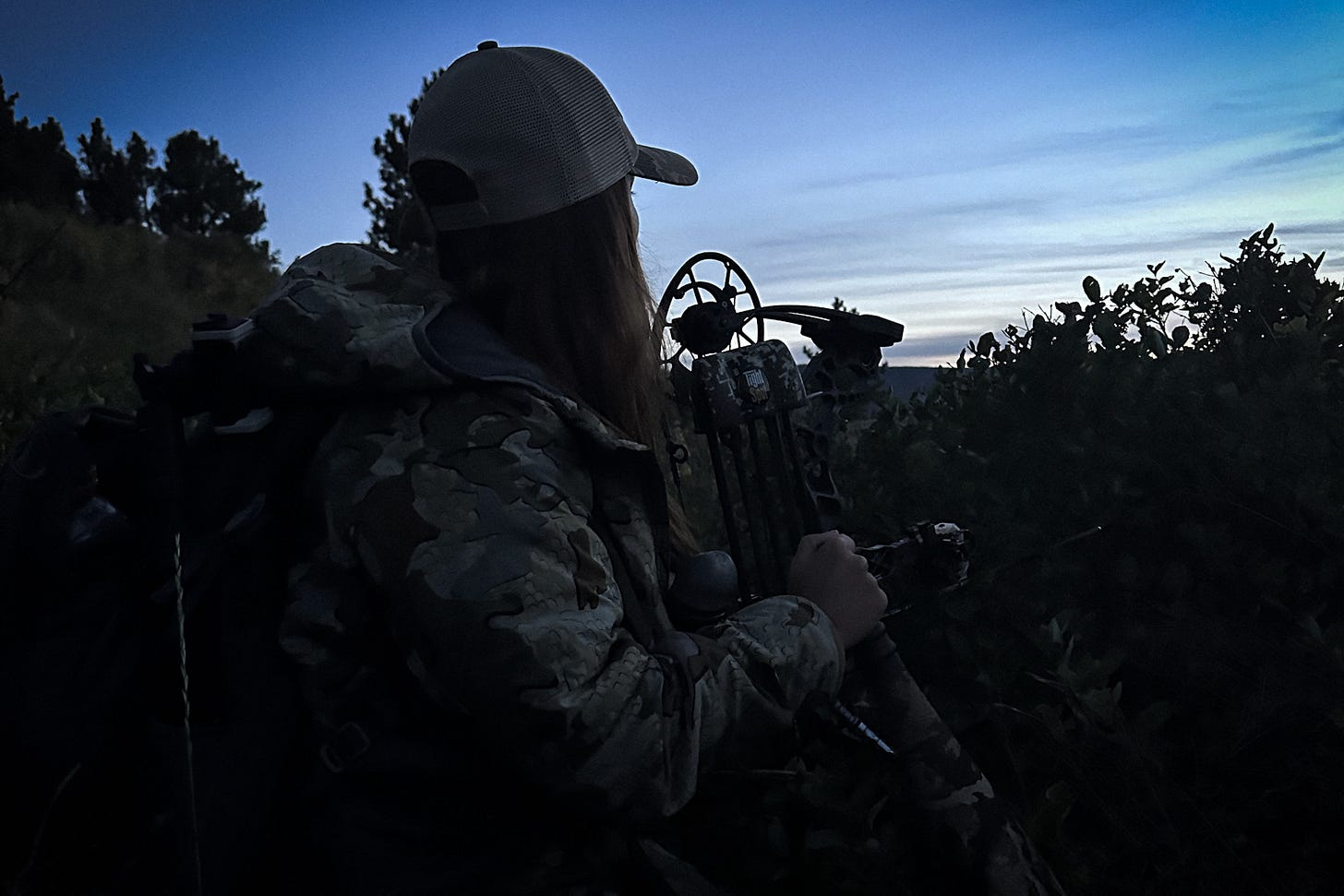
It is a scarring experience indeed, but, as John Steinbeck said, “To be alive at all is to have scars.”
tears. If your writing had been included on my English Lit syllabus, I would have better memories of that class.